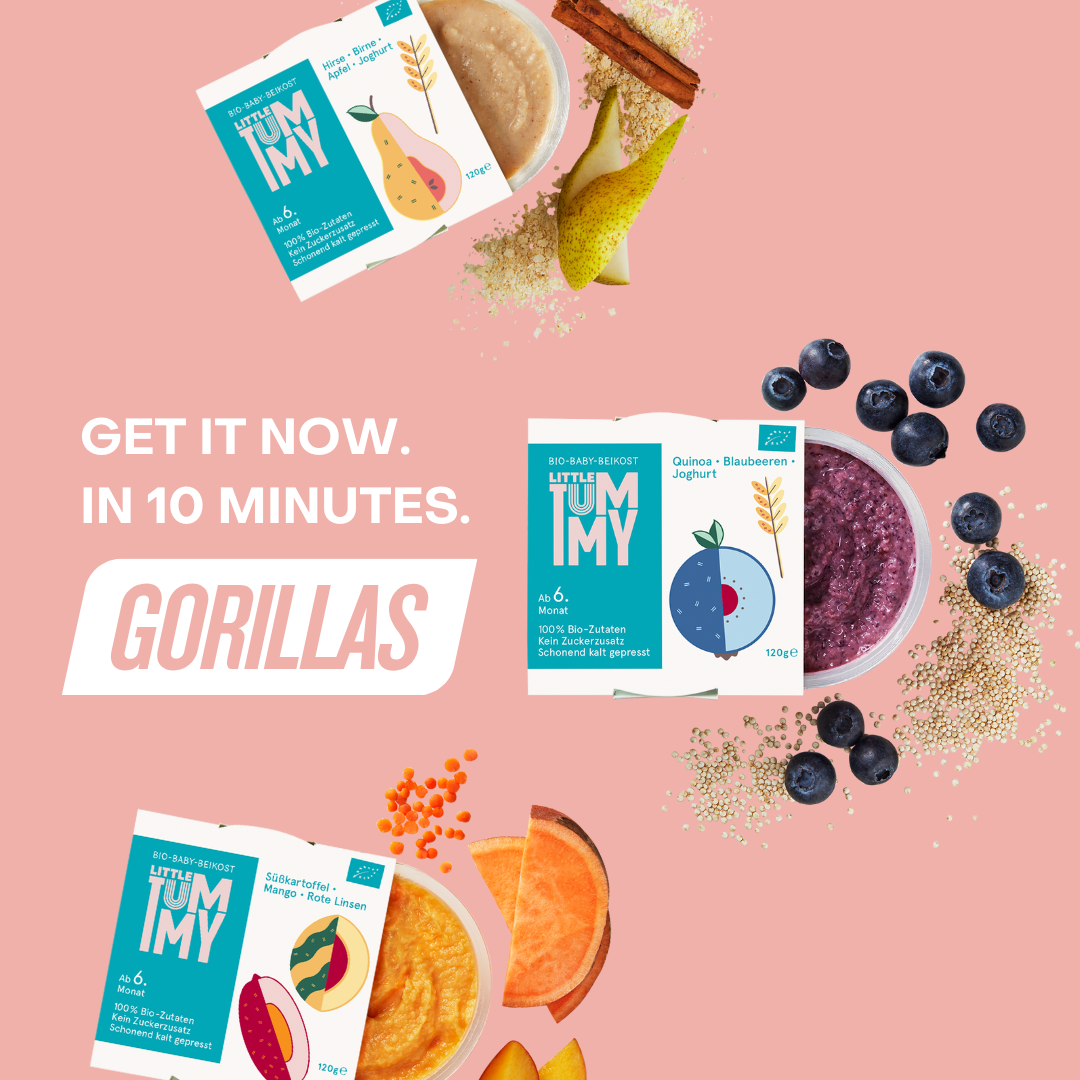Veganuary is all over the news and the number of people going vegan during January is increasing every year. The total amount of vegans in the UK has quadrupled between 2014 and 2018 and around 1% of Britain’s population consider themselves to be vegan (Source: The Vegan Society). A vegan diet is said to make your more conscious about your food choices and given the impact the meat industry has on our climate but also on the quality of our food, going vegan seems like a good choice. A lot of parents ask if a vegan diet is suitable for children, as well.
The answer is, as always, not simple. The NHS does not give a clear recommendation but suggests that children on a vegan diet should get a wide variety of foods to provide the energy and vitamins they need for growth. The German Society for Nutrition or the American Academy of Pediatrics state that a well-planned vegan diet is possible and vitamin supplementation should be considered.
The main concern about vegan diets is the risk of vitamin and micronutrient deficiencies. Especially for a child, these can have detrimental effects on development and growth. These are some of the nutrients, which need most attention in a vegan diet:
- Iron: Iron from plant-based sources is less well absorbed than from animal-based sources. Your child’s diet should be rich in whole grains, legumes, nuts, seeds, dried fruits, green-leafy vegetables and iron-fortified cereal products. Combine these foods with a source of Vitamin C (e.g. fruit for dessert) to enhance iron absorption
- Vitamin B12: Vitamin B12 deficiency can lead to severe developmental delays. Reliable Vitamin B12 sources are meat, dairy and eggs. Vegan infants and children should receive a vitamin supplement, which contains adequate amounts of Vitamin B 12.
- Calcium: Some plant-based milk products are supplemented with calcium. Other sources of calcium are soy products, such as tofu, green leafy vegetables and almonds. Some vegetables contain oxalate, which decreases calcium absorption. Boiling or steaming can reduce the amount of oxalate.
- Vitamin D: Foods containing Vitamin D are not abundant in general, so in the UK, a Vitamin D supplement is recommended for all children under the age of 4 years.
- Zinc: All iron-rich sources are in general also rich in zinc. Processing and cooking these foods decreases the amount of phytates, which can inhibit zinc absorption.
- Omega 3-polyunsaturated fatty acids: Walnuts, flaxseed, chia seeds and vegetable oils, such as sunflower or rapeseed oil are a great source of this essential fatty acid.
- Iodine: Fortified plant-based milks or sea vegetables are good sources of iodine in a vegan diet. Sea vegetables should not be consumed in high amounts, though, as there are concerns about contamination. It might, again, be the best choice to start a supplement to ensure adequate iodine intake.
When thinking of starting your baby on a vegan diet, it might be a good idea to talk to a dietitian or nutritionist about meal plans. There are great sources online, such as Priya Tew’s YouTube videos, the guide for Eating Well Vegans under 5 of the First Steps Nutrition Trust or the website of the Vegan Society. Head over to dietitian’ blogs, such as Paula Hallam’s , to get more information about plant-based choices and ideas for delicious recipes. There are few vegan supplements for infants on the market, for example by natures aid. Make sure you discuss any vitamin supplementation with a health professional to make sure your child receives the adequate amount, as not all supplements contain the recommended daily intake for all vitamins and micronutrients.
